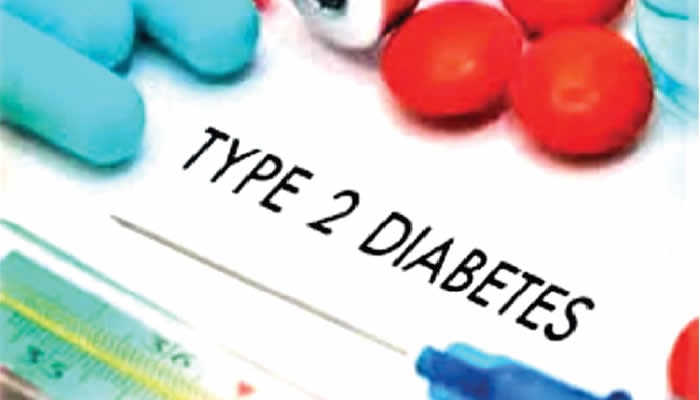Endocrinologists have called for more public awareness to encourage early detection of diabetes, saying delayed diagnosis exposes patients to life-threatening complications.
The call was made on Friday during the free diabetes screening exercise organised by the Endocrinology, Diabetes and Metabolism Unit of the Lagos University Teaching Hospital to commemorate World Diabetes Day.
The free screening started with a 10-minute walk of public sensitisation to raise awareness, educate the public, and promote early detection of diabetes.
Speaking with Saturday PUNCH during the exercise, the Deputy Chairman of the Medical Planning Committee at the College of Medicine, Lagos State University, Dr Wale Bello, said the programme was aimed at helping the participants “know their numbers” by offering free checks for weight, height, blood pressure, and blood sugar.
Bello, who represented the Chief Medical Director, Prof Wasiu Adeyemo, described the current prevalence of diabetes as alarming, noting that early screening remains the most effective way to curb rising cases.
He said, “The Endocrinology, Diabetes and Metabolism Committee has made arrangements that include partnerships with various companies of hospital management to put together this screening programme. Like I said, it includes weight, height, blood pressure, blood sugar, and the participants would have a record of it, so it’s a ‘know-your-numbers’ programme.
“The participants go away with the numbers, and it will serve as a reference point to know those vitals. The figures we have now put the prevalence of diabetes somewhere between 5 and 7 percent, which means that if you take 100 Nigerians randomly, we are likely to find about 5 to 7 of them having diabetes, and that’s a very large prevalence rate.”
According to him, while the government provides infrastructure, manpower, and supportive policies such as mandatory blood sugar tests for all patients at public hospitals, the responsibility for enlightenment lies with healthcare professionals and relevant medical associations.
He emphasised the need to amplify messages on the prevention of diabetes to Nigerians who may not have access to medical facilities.
Bello, who warned against the fear-driven avoidance of screening, explained that diabetes silently damages vital organs when left unchecked.
The condition, he said, often leads to irreversible complications.
He urged healthcare providers to continue creating awareness to raise the consciousness of people about their health status.
“The earlier we make the diagnosis, the more likely we’ll be able to control it without these complications, and the only way we can make a diagnosis is to screen for it. Once you know, there are so many things you can do. It’s not everybody who has diabetes, for example, that will require insulin or a tablet. Some people just need to watch their diet, exercise, lose weight, and their blood sugar becomes controlled.
“It also tells you the kind of things that you can do and shouldn’t do, and the kind of things you should do. Simple things like exercise, reducing or abstaining from refined sugar. All those kinds of things contribute to reducing your blood sugar. So, screening is important to detect it, but it’s also important if we do a screening today, and it is normal.
“If you don’t have diabetes, then you can adopt lifestyle measures that can prevent diabetes. And there is no age limit to who can have it. Diabetes can affect individuals of any age. They are just a bit different in what they do. So, for example, children are more likely to have what we refer to as type 1 diabetes, while adults are more likely to have what we refer to as type 2 diabetes. But diabetes can affect people of any age,” he added.
Also, the Head, Endocrine and Diabetes and Metabolism Unit of the Lagos University Teaching Hospital, Prof Olufemi Fasanmade, raised concerns over the soaring rate of diabetes burden, saying one in every 10 adults live with diabetes.
He urged Nigerians to take routine checks seriously, advising that anyone testing for malaria or typhoid should also demand a blood sugar test, as diabetes often appears alongside hypertension and high cholesterol.
According to him, Nigerians should also pay attention to their blood pressure, as ignoring vital indicators may increase the risk of preventable complications through early detection.
The don added that knowing the vitals not only gives individuals a clearer understanding of their health but also helps them seek timely medical intervention.
He said, “It’s important to know the numbers. People do not understand that diabetes is very common. In the whole world today, about 600 million human beings suffer from diabetes. That is a very important number. In Nigeria today, we believe between five and 10 million people have diabetes, and that is a very big number. That is a number bigger than some states in terms of population. To bring it down to individuals, one out of 10 adults in Nigeria has diabetes.
“For individuals, we must know that your blood sugar must not be more than 7 millimoles if you are using millimoles, and 126 for those using milligrams. If it is higher than that in terms of milligrams, then it means you have diabetes until otherwise proven.
“Your blood pressure must not be more than 120 over 80. If you are getting blood pressure readings that are more than that, please recheck just to be sure you are not hypertensive. If you check your cholesterol and it is higher than five, please check again and then let the doctor advise you on what to do. So these are very important numbers.









